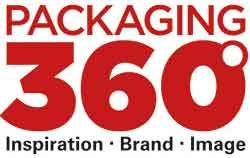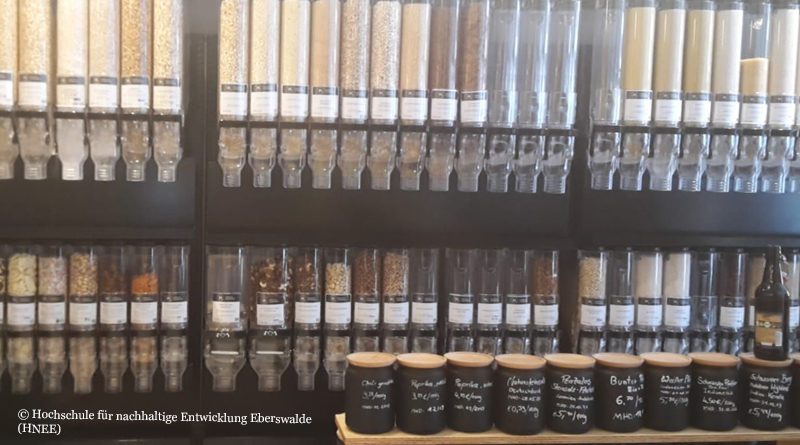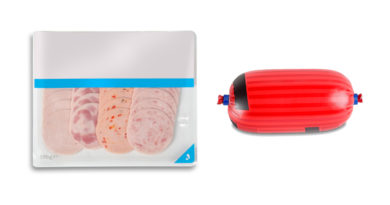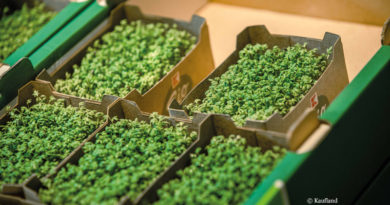Avoidance of packaging waste
New standards in the avoidance of packaging waste: the Deutsche Bundesstiftung Umwelt (DBU) is funding a waste reduction project at the Eberswalde University of Applied Sciences.
An ordinary shopping trip often generates a lot of waste in the form of packaging. Zero waste stores are an alternative. However, the operators have so far lacked standardized solutions, for example for transport or marketing of their products. A project at the Eberswalde University of Applied Sciences (HNEE) aims to remedy this situation and systematically reduce packaging waste through industry-wide standards. The German Federal Foundation for the Environment (DBU) is providing the project with technical and financial support of around 291,000 euros.
Pasta in plastic packaging, shrink-wrapped fruit and vegetables, elaborate outer packaging for confectionery, and drinks in disposable plastic bottles: Germany has a steadily growing waste problem. While the amount of packaging waste was around 15 million tons 20 years ago, it was already 18.6 million tons in 2018. “Plastic waste in particular is responsible for a large number of environmental problems,” says Dr. Susanne Wiese-Willmaring, DBU Head of the Food Unit. According to information from the Federal Environmental Agency, up to ten million tons of waste ended up in the sea worldwide every year. Many animals mistook the particles for food and would eat them without being able to digest the particles. They starved to death on a full stomach. For other animals, the plastic particles would become a deadly trap because they could get caught in them and drown.
Less waste when shopping
According to Wiese-Willmaring, one way of generating less packaging waste is to shop in unpackaged stores: customers fill the required quantities of pasta, coffee, cleaning agents and the like into containers or take the loose goods with them. Reusable systems are also an option. “Zero waste stores already use bulk packaging and thus save material,” says project manager Prof. Dr. Jens Pape from the Eberswalde University of Applied Sciences. However, he adds, various functions are attached to packaging. Pape: “For example, they ensure hygiene, fulfill labeling requirements for shelf life, storage, ingredients and allergens, or are printed and labeled for marketing purposes. The zero waste trade must therefore develop alternatives for this.”
New standards for unverpackt stores
The HNEE researchers and their practice partners see two main challenges: low-packaging procurement, and the legal framework. “Logistics and suppliers are not yet adapted to packaging-free purchasing, says Pape. “We need efficient and practical solutions for transport packaging, the use of sustainable packaging materials and reusable systems.” One sensitive aspect, according to Pape, is the given legal framework, especially hygiene and pest management. So far, there is no standardized approach to this, with each store developing individual solutions. The aim of the project is to develop industry-wide standards in order to make the zero waste concept more efficient, sustainable and professional in the future. In this way, “zero waste” can also become more interesting for the classic food trade.




